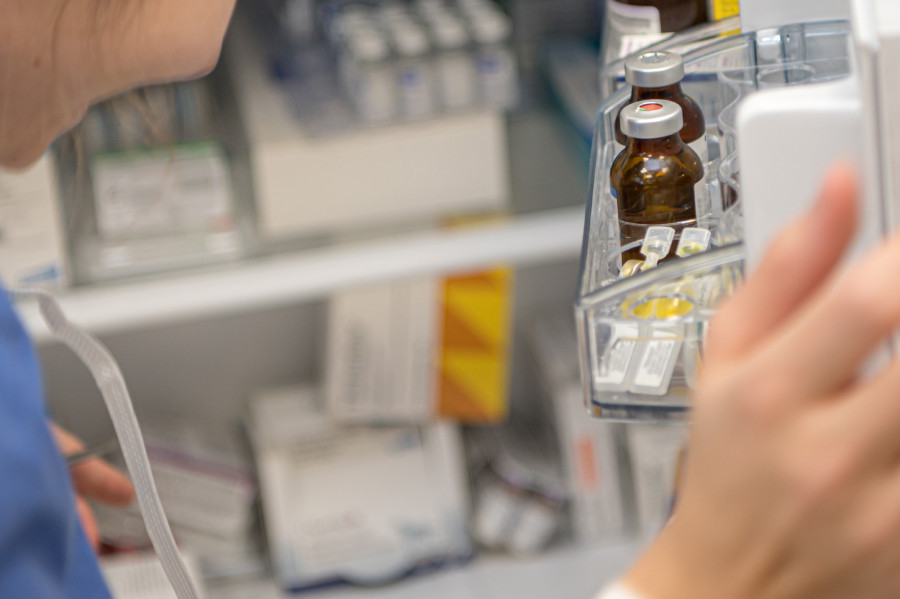Health
10 cold rooms and nine freezer rooms to be set up to store Covid-19 vaccines
Gavi, the global vaccine alliance, has provided $700,000 to establish the facilities, which can store vaccines in temperatures up to minus 20 degrees Celsius.
Arjun Poudel
In a bid to store Covid-19 vaccines in proper temperatures, the Ministry of Health and Population has started work to set up cold rooms and freezer rooms in all seven provinces including in Kathmandu Valley.
“We have started works to establish 10 cold rooms and nine freezer rooms for the storage of coronavirus vaccines,” Dr Shyam Raj Upreti, coordinator of the Covid-19 vaccine advisory committee, told the Post. “The capacity of those cold rooms and freezer rooms varies as per the population of the provinces.”
A cold room is a refrigerating chamber, in which a specific temperature is artificially generated. It is generally designed for storing vaccines in an environment below the temperature outside.
Freezer rooms are designed to freeze vaccines and preserve them for the future.
Gavi, the global alliance of vaccines, has provided $700,000 to set up the facilities, from which 10 cold rooms and nine freezer rooms will be constructed, according to Upreti.
“We can store vaccines in temperatures up to minus 20 degrees Celsius,” Upreti said. “We can store the vaccines of Moderna and other companies requiring minus 20 degrees Celsius [temperature], once the facilities are established.”
The government has also assessed the existing storage capacities for coronavirus vaccines and directed the agencies concerned to improve the facilities where it is necessary. All existing storage facilities throughout the country can preserve vaccines suitable for minus 2 to minus 8 degree Celsius temperatures.
“The government will try to buy vaccines, which will be matched with our storage facilities,” Jhalak Sharma, chief of the Child Health Section at the Family Welfare Division under the Department of Health Services, told the Post.
“Except for Pfizer's vaccine, which is required to be stored at minus 70 degrees Celsius, we are working to upgrade the capacity to store other companies' vaccines, which require up to minus 20 degree Celsius temperatures.”
According to Sharma, it takes six months to one year to set up facilities to store Pfizer’s vaccines, so chances of Nepal procuring the company’s vaccines are slim.
The World Health Organization, which provides vaccines sufficient for the 20 percent population under its COVAX programme, will also provide the jabs to suit the country’s storage capacity.
COVAX is a collaboration, with more than two-thirds of the world engaged, that has the world’s largest and most diverse portfolio of potential Covid-19 vaccines. It is co-led by Gavi, the global vaccine alliance, and the World Health Organization.
The World Health Organization has asked the government to prepare for the rollout of Covid-19 vaccines under the COVAX programme in the second trimester of 2021, according to Health Ministry officials.
The government has written to the Indian government, requesting for help in the procurement of Covid-19 vaccines manufactured by Indian companies to inoculate around 20 percent of the Nepali population.
Beside that, authorities concerned have written formal letters to various countries and their companies, whose vaccines are in third phase trial to procure the vaccines.
The government has estimated that Rs 48 billion is needed to inoculate 52 percent of the population.
A source at the Health Ministry said that discussions are being held to allow private companies to import vaccines.
“It is the responsibility of the government itself to give vaccines to the high risk population,” an official at the Health Ministry told the Post, asking not to be named. “Discussions are being held to allow private companies to bring in vaccines.”
Meanwhile, the Health Ministry has been preparing to send swab samples of six people, who returned from the United Kingdom and tested positive for the coronavirus, for whole-genome sequencing tests to know if the virus is previously seen or it is a new variant.
“We will send samples by Wednesday evening,” Rajesh Kumar Gupta, spokesperson for the National Public Health Laboratory, told the Post. “The samples will be sent to the World Health Organization’s collaborating laboratory for the study.”
An official at the National Health Research Council, however, said that the samples will be studied at a private laboratory in the country.




 9.83°C Kathmandu
9.83°C Kathmandu















